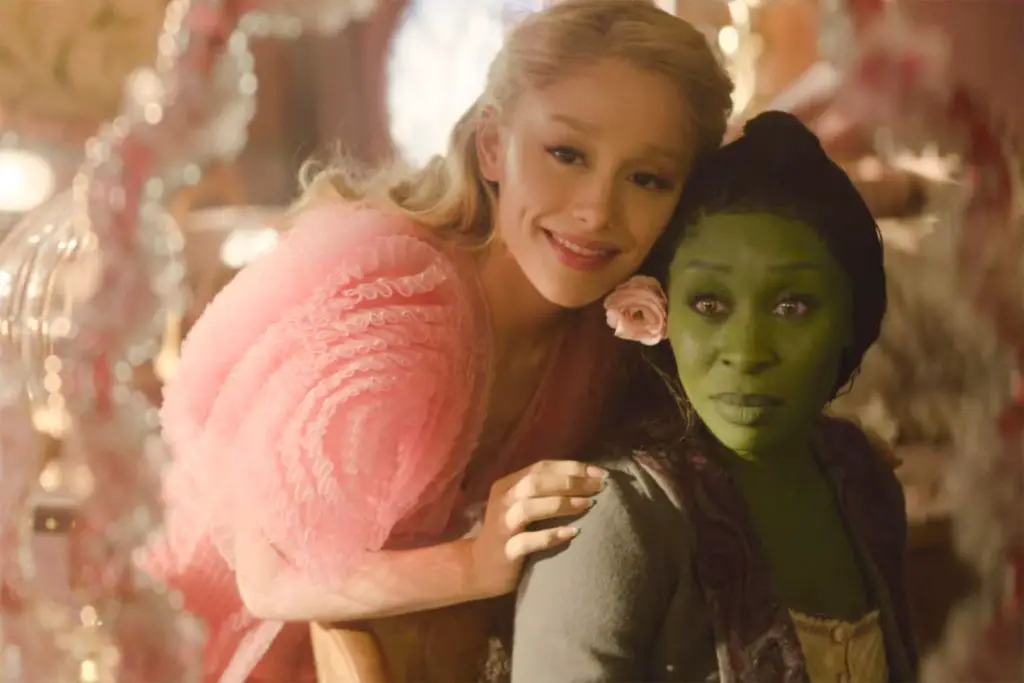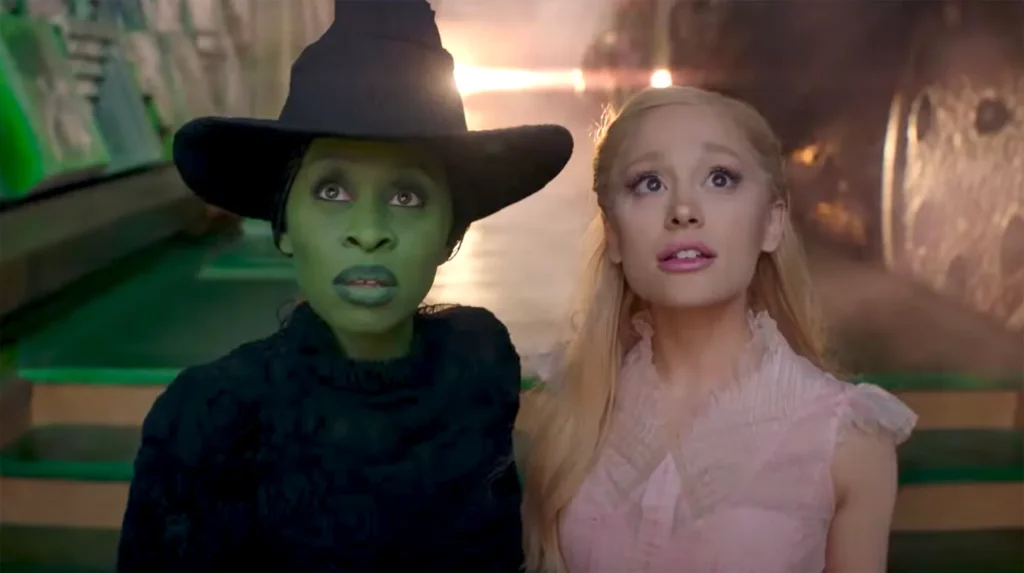
Credit: Universal
Trigger Warning At Cinemas Before Wicked Sparks Outrage
A trigger warning playing at the beginning of Wicked has left audiences furious.
The highly anticipated cinematic adaptation of Wicked has ignited discussions across social media, not only for its cast and storytelling but for an official trigger warning issued in the United Kingdom.
As a prequel to The Wonderful Wizard of Oz, Wicked explores the origins of Elphaba, the Wicked Witch of the West, shedding light on her journey from a misunderstood outsider to the infamous figure known throughout Oz.
While the story has long been cherished by fans of the 2003 Broadway musical and Gregory Maguire’s 1995 novel, the decision to include a trigger warning for the film has sparked widespread debate.

Jon M. Chu’s Wicked represents the first adaptation of the iconic musical for the big screen, introducing its powerful narrative to audiences on a global scale.
The film has found itself at the center of various controversies, with critics discussing pay disputes among major stars Cynthia Erivo as Elphaba and Ariana Grande as Glinda, alongside debates over theater etiquette, including whether audiences should sing along during screenings.
The British Board of Film Classification (BBFC) took note of the film’s expanded reach and issued a content warning that highlights mature themes such as discrimination, bullying, and oppression.
While these themes are central to Maguire’s original story and the Broadway production, their inclusion in a mainstream blockbuster prompted the BBFC to address potential sensitivities for audiences unfamiliar with the source material.
The BBFC’s content advisory assigns a 2/5 rating for ‘discrimination,’ specifically noting instances of Elphaba facing bullying and ridicule due to her green skin.
Additionally, the film portrays Nessarose, a character who uses a wheelchair, encountering ableism, and Dr. Dillamond, a talking goat, suffering persecution for his status as an animal in Oz’s fantastical society.
In its statement, the BBFC elaborated: “A green-skinned woman is mocked, bullied and humiliated because of her skin color. A disabled woman in a wheelchair is treated in a condescending manner by able-bodied people. Talking animals are persecuted in a fantastical society.”
This trigger warning, although designed to prepare audiences for the heavier subject matter, has drawn mixed reactions online.
Some have argued that the advisory is unnecessary for a story as widely known as Wicked, while others have praised the decision for acknowledging the emotional weight of these themes, particularly for first-time viewers.
One person pens: “We’ve reached peak absurdity. The Wicked musical now comes with a trigger warning for Elphaba’s green skin. Apparently, the fictional pigmentation of a made-up witch might offend someone, somewhere.
“This isn’t “inclusivity”; it’s infantilization. Are we really so fragile that even fantasy requires a health and safety label? What’s next? A trigger warning for blue skies in case someone’s favorite color is red?
“This isn’t progress—it’s a parody of it. We need resilient minds, not bubble-wrapped sensitivities.”

For many longtime fans, Wicked’s exploration of complex societal issues is part of its enduring appeal.
Maguire’s novel and its adaptations use the fantastical setting of Oz to confront real-world problems, including systemic discrimination and marginalization.
By highlighting these struggles, the story has remained relevant for nearly three decades, resonating with contemporary audiences who continue to grapple with similar challenges.
Despite the controversies surrounding the trigger warning and other aspects of the adaptation, Wicked has enjoyed remarkable commercial success since its November 22 release.
With a budget of $150 million, the film has already grossed over $162 million worldwide in its opening weekend, making it the highest-grossing debut for a Broadway adaptation.
Critics and audiences have praised the film, with approval ratings on Rotten Tomatoes currently at 89% and 96%, respectively.
As Wicked continues to break records and draw in viewers, its exploration of complex, mature themes remains a defining element of its narrative.
With Part Two slated for release in November 2025, the Wicked saga is set to enchant audiences while continuing to spark important conversations about representation and discrimination – and likely, trigger warnings, too.
Related Article: Wicked Star Cynthia Erivo Hits Back At Fans Who Edited Movie Poster: ‘Most Offensive Thing I Have Seen’
Related Article: Wicked Fans Are Only Just Learning What The Name ‘Elphaba’ Actually Means